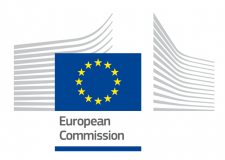Only in Belgium
The European Commission has written to Belgium, ordering that country to collect an extra €700m in taxes from at least 35 multi-national companies. The letter is the latest move by the European Commission to use its power over the European single market to clamp down on tax avoiding multinationals.
The European Commission has made the move after it determined that Belgium had given unfair tax breaks to some multinationals operating in its jurisdiction. This distorted competition across the European market.
The scheme run by Belgium was called an “excess profits scheme”. Under a business investment programme the government termed ‘Only in Belgium’ the country exempted companies from paying taxes where the company was making too much profit.
Confused? The argument runs like this. A multi-national makes more profits than a smaller domestic business because it is bigger, more efficient, can negotiate bulk purchases, share resources within a group of companies and take advantage of other synergies. Belgium clearly saw all these extra profits as some sort of disadvantage for the multinational companies, and so decided to give them a tax break. The companies were exempted from taxation on profits which were deemed ‘excess’, applying to any profits that arose from being a multinational.
In reality this tax break allowed some companies to write off up to 90% of their taxes. Local businesses had to pay Belgium’s full corporate tax rate of 33%. It really would be difficult to think of a scheme that was more brazen in redistributing wealth to the rich and powerful (and reinforcing the market power of multinationals)
At the moment we do not have the full list of companies which used this loophole, although after the US had criticised the European Union for unfairly focusing on the activities of its multi-nationals, the European Commission was keen to stress that this decision mainly impacted European companies.
Euribor
This week criminal proceedings begin in London over the Euribor manipulation scandal. The Euribor is the European version of Libor. It is the rate at which Eurozone banks will lend to each other overnight. The rate is used as a reference value for hundreds of trillions of Euro denominated financial instruments.
Eleven bankers stand accused of rigging the Euribor market, in much the same way as Libor market was rigged. One of the bankers, a former Deutche Bank trader, is being defended by David Cameron’s (the UK Prime Minister’s) brother, Alex Cameron.
On Monday the case went to a magistrates court where bail conditions are set. Five defendants did not turn up to the hearing, prompting speculation as to what happened to the missing bankers. Reuters quotes one source saying that papers may not have been filed correctly by Britain’s Serious Fraud Office. If this turns out to be the reason it would be another embarrassment for the UK’s crime fighting agencies after the National Crime Agency was revealed to have put in jeopardy a number of major cases on the basis of unlawful warrants.
The current case is the fourth to be brought in London concerning market rigging of interest rates.
A princess goes on trial
This week the trial of Princess Christina on tax fraud charges begins. The first member of the Spanish Royal Family to face criminal charges since the restoration of the Spanish monarchy in 1975, the princess is facing a maximum of 8 years in jail if found guilty, which brings a whole new meaning to the term, “her majesty’s pleasure”.
The charges relate to Christina’s husband Inaki Urdangarin, who is accused of embezzling public money by taking grants to put on events that never happened. This money was then funnelled into a real estate company that paid for personal expenses of the couple: expenses which were never declared to the tax authorities.
The case is expected to last 6 months.
Shire’s Big Tax Deal
Shire, an offshore pharmaceutical company registered in the tiny tax haven of Jersey, has made a multi-billion dollar takeover of American company Baxalta.
Shire, which is substantially based in Ireland was the subject of a huge amount media attention in 2014 when AbbVie, a US pharmaceutical company sought to buy the company and undergo a corporate inversion, using the deal to redomicile out of the United States and slash its corporate tax rate.
The proposed inversion attracted the anger of many in the States, including President Obama, and spurred the Treasury Department to change corporation tax rules.
In the end, citing the changes made by the Treasury, Abbvie dropped the deal. Obama won.
But whilst Obama may have been able to stop the flood of US companies moving offshore. The changes clearly don’t stop the offshore tax barbarians from coming in and taking away US companies.
The deal appears largely to be tax driven. According to the Financial Times, Baxalta’s corporate tax rate will fall from 23% to between 16-17% as a result of being absorbed into Shire’s corporate structure.
Shire was keen to stress that it made good business sense, citing the many synergies that it said would lead to savings of $500m a year. To many this might seem a puzzling. When the company originally put forward their offer the CEO of Baxalta said:
“Shire’s interest in Baxalta is puzzling. Is it trying to opportunistically acquire our attractive haemophilia, immunology and growing oncology platforms without true synergies?”
He went on to say: “I understand that Shire is making a big deal out of potential tax synergies.”








Leave a Reply